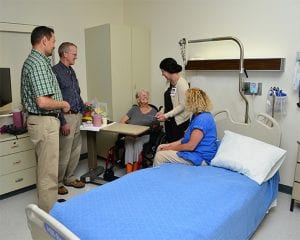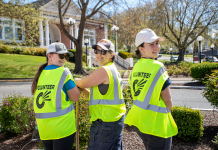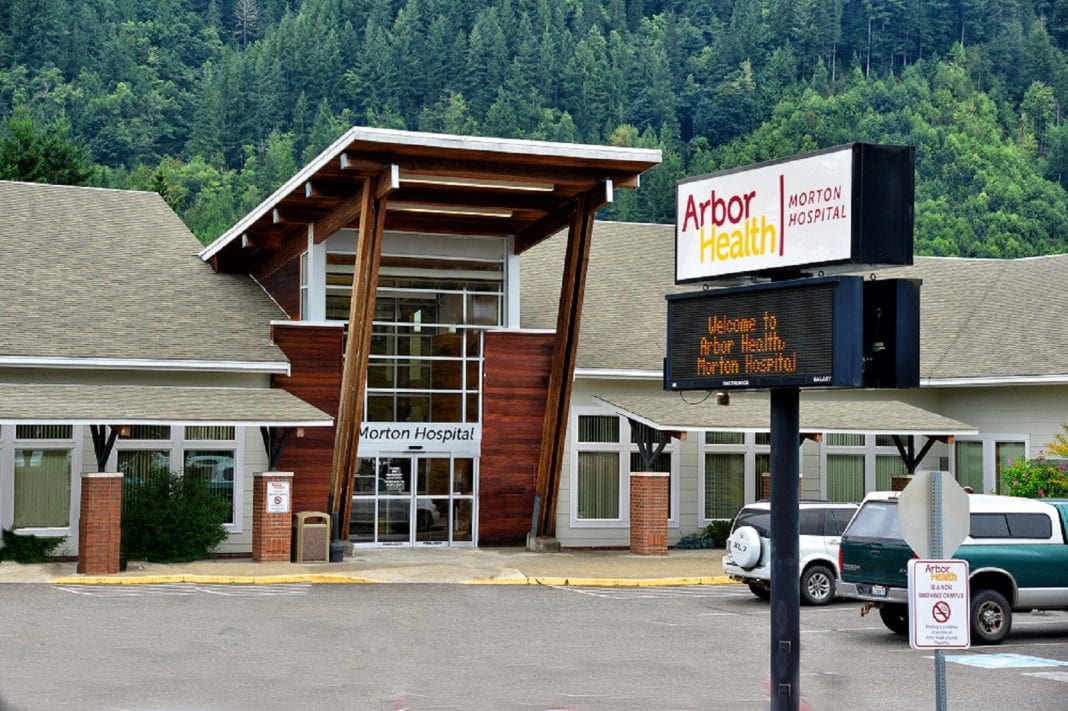It almost sounds like a joke. “Did you hear the one about the guy who had a stroke, spent nine days in the hospital in Seattle? Yeah, they got him well enough to discharge but then they told him he wasn’t well enough to go home so they sent him to a nursing home.”
No, it’s actually not a joke, it happens every day. And it’s not just stroke patients who find themselves in that state of transition. Joint replacement patients, those with head injuries, fall victims … there are a whole host of injuries and illnesses that require patients to be hospitalized in large, specialized hospitals but then need to be discharged to a lower level of care before they’re well enough to go home. Typically, these patients are sent to skilled nursing facilities, commonly termed as nursing homes, often in the same city as the discharging hospital. For East Lewis County residents, that means an extended stay a long way from home. These facilities are often crowded with a high number of patients for each nurse. It’s not unheard of to find those nurses managing 10-15 patients each.
It doesn’t have to be that way, though. Arbor Health-Morton Hospital has risen to meet the needs of these patients in a much better way with its new Mayo Clinic-based Transitional Care Unit. This service enables our community members to recover close to home and offers a number of important advantages over what nursing homes can offer. “Skilled Nursing Facilities (SNFs) are not connected with a hospital,” Case Manager LeeAnn Evans, R.N., explained, adding that there are big differences between SNFs and Morton Hospital’s Transitional Care Unit.

One aspect that is quickly obvious to patients is that Morton Hospital has a much higher nurse-to-patient ratio with each nurse having only four or five patients to care for compared to the 10-15 in most SNFs. And being in a hospital, there are many additional services readily available—such as an emergency room physician, physical therapy, occupational therapy, speech therapy, radiology, pharmacy, and medical laboratory.
Other than the emergency room doctor and radiology, all of these disciplines and more play a daily part in the patient’s recovery at Morton Hospital’s Transitional Care Unit. “We do daily Interdisciplinary Rounds on every patient every day, including Transitional Care patients,” Evans said. The doctor, physical therapist, nurse, occupational therapist, speech therapist, dietician, diabetes educator, respiratory therapist, case manager, infection preventionist, pharmacist, case manager, and discharge planner meet daily at 8:00 a.m. to review the progress of every patient.
“Everyone brings their own expertise to the patient,” Evans said, explaining that they review what’s going well, what’s not going well and what they need to change. “We make a lot of changes during that time,” she said, such as ordering laboratory tests and medication changes.
Each Wednesday, the Interdisciplinary Rounds are taken one step further by visiting each patient’s room as a group. In this meeting, the participants also discuss the goal the patients have set for themselves. Evans said the whole group goes over the goal and makes sure they are either meeting that goal or making progress toward it and then setting new goals when appropriate.
It’s not just the local people who believe Morton Hospital is best positioned to provide this care. “Hospital-based Transitional Care is the ideal setting for patients with complex health conditions and post-acute needs,” said Mayo Clinic Pulmonologist Mark Lindsay, M.D. “By offering these services in rural hospitals, patients and families can get high-quality post-acute care close to home. Morton Hospital has the staff, the facilities, and the commitment to deliver exceptional Transitional Care.”
For more information on transitional care at Morton Hospital, contact LeeAnn Evans, R.N., at 360-496-3533.
Sponsored









































